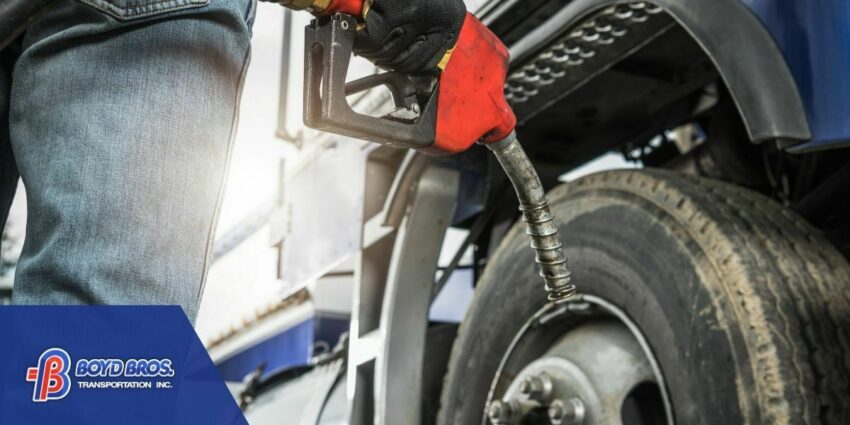
Maximizing Mileage: Essential Tips for Improving Fuel Economy on the Road
Post Date - Apr 24, 2024
For truck drivers, fuel efficiency isn't just about saving money at the pump—it's also about reducing emissions and maximizing profitability. With fuel costs being a significant expense in the trucking industry, every mile per gallon matters. Fortunately, there are several strategies and habits that drivers can adopt to improve their fuel economy and minimize their environmental footprint. In this blog, we'll explore some practical tips for enhancing fuel efficiency on the road.
- Maintain Proper Tire Pressure: One of the simplest yet most effective ways to improve fuel economy is by ensuring that your tires are properly inflated. Underinflated tires create more rolling resistance, which forces your engine to work harder and consume more fuel. Check your tire pressure regularly—especially before long hauls—and inflate them to the manufacturer's recommended levels.
- Reduce Aerodynamic Drag: Aerodynamic drag accounts for a significant portion of fuel consumption, especially at highway speeds. Minimize drag by keeping your truck's aerodynamic features clean and in good condition. Consider investing in aerodynamic add-ons such as side skirts, roof fairings, and gap reducers to streamline airflow and reduce fuel-wasting turbulence.
- Avoid Excessive Idling: Idling consumes fuel without adding to forward motion, making it a major contributor to fuel waste. Minimize idle time by turning off your engine during extended stops, such as rest breaks or overnight stays. Use auxiliary power units (APUs) or bunk heaters to maintain comfort in your cab without idling your engine unnecessarily.
- Practice Smooth Driving Habits: Aggressive driving behaviors, such as rapid acceleration, hard braking, and excessive speeding, can significantly reduce fuel efficiency. Instead, practice smooth and gradual acceleration, maintain a consistent speed, and anticipate traffic patterns to avoid unnecessary braking. Adopting a relaxed driving style not only saves fuel but also reduces wear and tear on your engine and brakes.
- Optimize Cruise Control: Cruise control can help maintain a steady speed and improve fuel efficiency on flat, open roads. However, avoid using cruise control on hilly terrain or in heavy traffic, as it may cause your engine to downshift unnecessarily and increase fuel consumption. Learn to use cruise control judiciously to maximize its benefits.
- Reduce Vehicle Weight: Carrying excess weight in your truck increases fuel consumption by forcing your engine to work harder. Periodically review your cargo and remove any unnecessary items or equipment that add unnecessary weight. Additionally, avoid filling your fuel tank to capacity unless absolutely necessary, as extra fuel adds unnecessary weight and reduces fuel efficiency.
- Plan Efficient Routes: Plan your routes in advance to minimize unnecessary mileage and avoid traffic congestion whenever possible. Use GPS navigation systems or route planning apps to identify the most fuel-efficient routes, accounting for factors such as road conditions, traffic patterns, and elevation changes. By choosing the most direct and efficient route, you can save both time and fuel.
At Boyd Bros., we're committed to providing our drivers with the support, resources, and opportunities they need to maximize their mileage and minimize their impact on the planet. With our state-of-the-art equipment, fuel-saving technologies, and comprehensive training programs, Boyd Bros. empowers drivers to drive smarter, safer, and more efficiently every mile of the way. Join us at Boyd Bros. and be a part of a team that's driving toward a greener, more sustainable future for trucking.